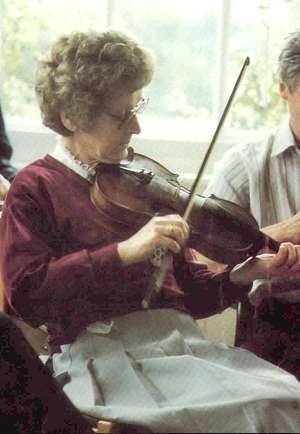 This week we revisited The Cameron Highlanders, a four-part tune originally by James Scott Skinner that changed a little when it went over to Ireland.
This week we revisited The Cameron Highlanders, a four-part tune originally by James Scott Skinner that changed a little when it went over to Ireland.
I have taught this two-part version a couple of times, but not recently (although I included it in last year’s resources). I may have heard this played by Irish band Stockton’s Wing originally, but it has changed and developed a bit since then.
A nice thing about the setting of the tune in D is that it focuses on D F and A and it is possible to emphasise the bottom D on the flute and really get it to resonate.
Getting that hard bottom D beloved of traditional flute players is a holy grail. For me, it’s the key to unlocking the sound of the whole flute. The entire relationship between you and your instrument can be expressed through this discovery and it is worth spending time working on it. I wrote up some notes on flute tone exploration with Amble Skuse in 2013 and further notes more recently.
Some other thoughts:
- Australian flute maker Terry McGee
- Paul Mulvaney’s flute essay covers this and other issues. This has been around a while but seems little known. I’m glad its still available.
- (And here’s a link to a side-issue, spectral analysis of the Hard D on the uilleann pipes. Actually, it’s quite interesting. Really)
Some information on the tune from last year, with links to the recorded music on flute and whistle. More on James Scott Skinner here and here. The music in ABC format and as a PDF is on the Resources page for this year.
Image: Fronticepiece from the Miller o’ Hirn collection by James Scott Skinner, 1881; University of Glasgow Library.


